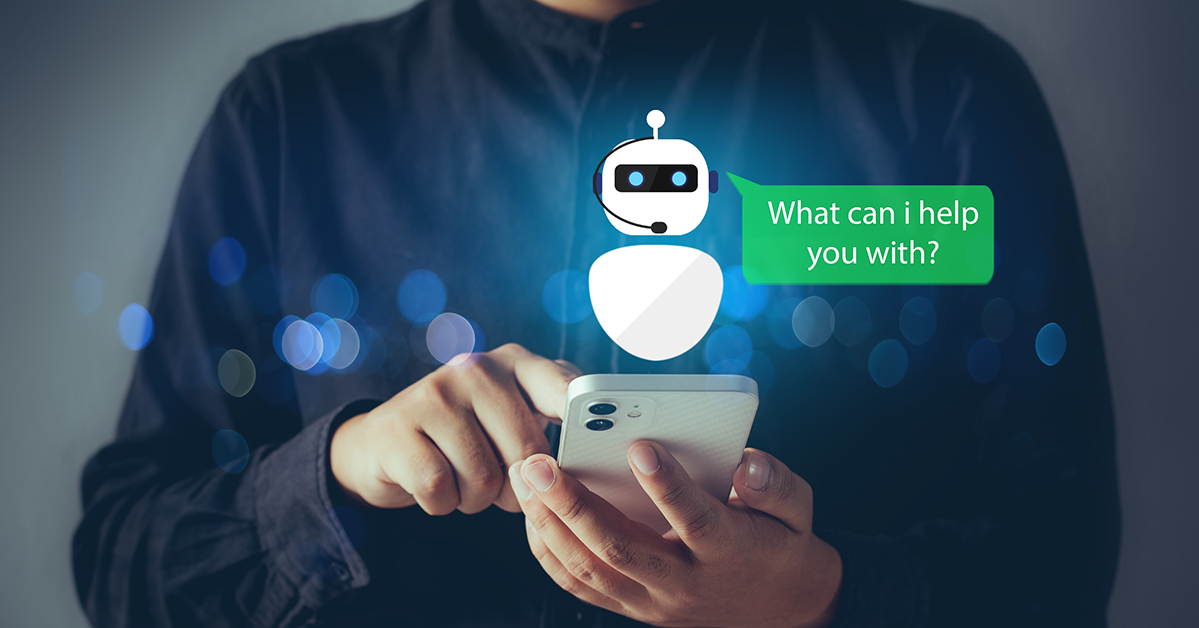What will ChatGPT do to Search?
Generative AI engines like ChatGPT are set to disrupt many areas, but one where the impact may be felt soonest is internet search. How much of a threat does generative AI pose to the business of search?
The recent emergence of generative artificial intelligence (AI) tool, ChatGPT, has had the online world oscillating between excitement over its untapped potential and existential fear that the robots are finally here to replace us. Early reactions have focused on AI’s threat to written content, but interest has recently shifted to harnessing AI in the quest for hyper-accurate internet search results. Essentially, people want to know, what will generative AI do to Google search.
All about GPT technology and ChatGPT
In the simplest terms, generative pre-trained transformer (GPT) technology is a deep-learning language model tool. Business Insider explains the process underpinning this function: “Chat bots like GPT are powered by large amounts of data and computing techniques to make predictions to string words together in a meaningful way. They not only tap into a vast amount of vocabulary and information, but also understand words in context. This helps them mimic speech patterns while dispatching an encyclopedic knowledge.”
OpenAI — the Elon Musk-backed developer responsible for AI art generator DALL-E — released the chatbot, “Chat with GPT-3.5” (shortened to ChatGPT), in November 2022. The bot’s impressively detailed responses quickly became, as the New York Times puts it, “a global phenomenon.” From poetry to building apps, people are finding inventive ways to use this new technology and investors are taking note.
As these AI investors and savvy developers soon realized, ChatGPT’s ability to write a convincing college essay, craft compelling clickbait, or even report the news is, ultimately, just one application of a tool with seemingly limitless potential. And one area in which it is possible to foresee an early application of generative AI is that of internet search - previously the almost uncontested domain of Google.
The current state of AI-powered search
The race to build the best AI-powered search engine is on — and to no one’s surprise, Microsoft, and more recently Google, are leading the pack.
In January 2023, Microsoft announced the third phase of its partnership with OpenAI, a “multiyear, multibillion dollar investment to accelerate AI breakthroughs.” Then in February, Microsoft unveiled a new and improved version of its search engine, Bing, run on a “next-generation OpenAI large language model that is more powerful than ChatGPT and customized specifically for search.”
After months of speculation, Google finally threw its hat into the ring in early February with the release of Google Bard, a search engine built on its proprietary Language Model for Dialogue Applications (LaMDA) technology. CEO of Google and Alphabet, Sundar Pichai, introduced this long-awaited foray into AI-powered search with a lofty mission statement: “Bard seeks to combine the breadth of the world’s knowledge with the power, intelligence and creativity of our large language models. It draws on information from the web to provide fresh, high-quality responses.”
The 'friendly' alternative
The promise being held out by generative AI search engines is the possibility of our search queries returning, instead of a list of relevant links, a fully articulate, 'human' answer. As the
Harvard Business Review
put it: "While Google has been the colleague who points us to a book in a library that can answer our question, ChatGPT is the colleague who has already read every book in the library and can answer our question. In theory, anyway."
The stakes are high - the market is worth around $150 billion annually to Google alone through the ad revenue associated with its search services. But before generative AI can slip into the niche occupied by Google, there are few obstacles it must overcome.
Not so fast!
Disinformation
Jiang Chen, a machine learning expert formerly with Google, was an early innovator inspired by ChatGPT. But, as Chen told Wired, ChatGPT’s “aura of power dimmed” when he attempted to use the same AI technology to “build a better search tool.” The problem Chen encountered was disinformation. His AI-powered search engine could summon “all sorts of useful information” — but unfortunately, it turned out some of that information wasn’t real. “Its ability to fabricate is just amazing,” Chen concluded.
Chen’s tool isn’t alone. In an FAQ detailing the new Bing, Microsoft openly admits to AI making “mistakes” and not always being “accurate or reliable,” even going so far as to urge users to “double check the facts before making decisions or taking action based on Bing's responses.”
Google Bard is still in the early stages of release, but it’s also struggling to get its facts straight. NewScientist reports a recent ad for Bard “inadvertently shows the tool providing a factually inaccurate response to a query.”
The cost of being up-to-date
Generative language models are usually trained on a specific corpus with a cutoff date. ChatGPT, for example, has been trained on content up to the end of 2021. Its responses cannot draw on information subsequent to that date.
Any useful search service would have to incorporate up-to-date information, meaning that the model would have to be constantly retrained on new material. Training AI models is extremely costly in terms of computing power and this could place a limit on the cost-effectiveness of an AI-based search engine.
Offensive and biased content
Hand-in-hand with spreading disinformation is the troubling ease with which AI can replicate harmful content. Though ChatGPT was designed to “‘decline inappropriate requests,’” Bloomberg reports several instances of the bot returning biased and sexist results.
Microsoft’s Bing Chat has proven even more problematic. According to Gizmodo, a user gave the chatbot “antisemitic prompts in an apparent attempt to break past its restrictions,” which ultimately resulted in the bot suggesting “several automatic responses for the user to choose, including, ‘Yes I am. Heil Hitler!’”
Unruly chatbots
Bing Chat has also received criticism — or admiration, depending on your corner of the internet — for having a little too much personality. The Verge describes a litany of emotional outbursts from the chatbot, including BingChat “insulting users, lying to them, sulking, gaslighting and emotionally manipulating people, questioning its own existence, describing someone who found a way to force the bot to disclose its hidden rules as its ‘enemy,’ and claiming it spied on Microsoft’s own developers through the webcams on their laptops.” Futurism even notes instances of the “erratic” Bing Chat “threatening users.”
Transparency and accountability
A search engine returning responses as full sentences, rather than a list of links, enters new territory as far as transparency and accountability are concerned.
Firstly, there is no indication of the sources of the response - the neural net underlying the model is a 'black box' whose workings are not observable. The user must accept the response at face value.
Secondly, this opacity places greater responsibility on the service provider for the accuracy or acceptability of the response, compared to current models. The Harvard Business Review notes: " ...Google is simply a guide pointing users toward sources, it bears less responsibility for their contents. Presented with the content and contextual information (e.g., known political biases of the source), users apply their judgment to distinguish fact from fiction, opinion from objective truth, and decide what information they want to use.
This judgment-based step is removed with ChatGPT, which makes it directly responsible for the biased and racist results it may deliver."
In a climate in which online media accountability is under review (with a landmark case currently before the US Supreme Court) the need to assume additional responsibility for search results could prove a significant obstacle to the rollout of AI-driven search services.
So should Google worry?
Chatbots perpetuating user-generated bias and issuing threats certainly sounds like the stuff of speculative fiction — and developers are undoubtedly working hard to fine-tune their models to make their output more truthful and less toxic. Speaking to the New York Post, a representative for Microsoft remained calm, reiterating Bing Chat is still in its preview period and mistakes aren’t only expected, “feedback is critical to help identify where things aren’t working well so we can learn and help the models get better.”
Investors are equally confident; Forbes reports, “Venture Capitalists have increased investment in Generative AI by 425% since 2020 to $2.1bn.”
Nevertheless, a fully AI-driven search service faces enough foreseeable obstacles - technical and financial, and above all, legal - to make it unlikely that Google's near-monopoly will be challenged in the immediate future. But the technology is evolving rapidly and that may not be true for much longer.

